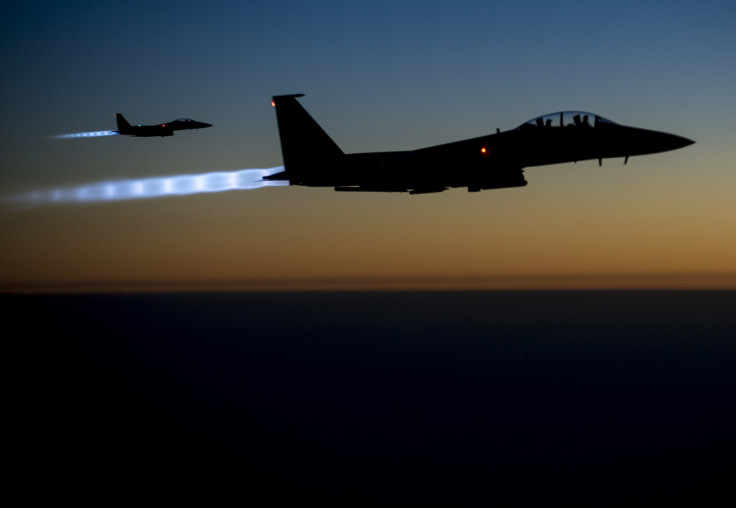Syria Conflict: US, Russia Sign Air Safety Agreement To Avoid Clashes In Syrian Skies

The United States and Russia have signed an agreement to regulate the movement of military aircraft over Syrian airspace and prevent clashes between their air forces in the skies over Syria, officials from both nations announced Tuesday. The announcement comes just days after the Pentagon said that U.S. and Russian jets had “entered the same battlespace” during their separate combat missions in the crowded skies over Syria.
“This document is of considerable practical importance. It regulates operations of manned and unmanned aerial vehicles in the air space over Syria,” the Russian defense ministry said, in a statement. “Upon its entry into force, this agreement will ensure establishing lines of 24-hour operational communication between the military headquarters of Russia and the United States and mechanisms of interaction, including provision of mutual assistance in case of emergency.”
The text of the agreement has not been released.
The U.S., as part of an international coalition fighting the Islamic State group, also known as ISIS, began conducting airstrikes in Syria last September. Russia began airstrikes last month, saying it was only targeting ISIS strongholds.
However, given Moscow’s open support for Syrian President Bashar Assad -- whom the U.S. government strongly opposes -- many believe that Russian jets are also targeting rebels fighting government forces and civilians. According to the U.K.-based monitoring group Syrian Observatory for Human Rights, Russian airstrikes have so far killed 370 people, including 127 civilians.
“We continue to believe that Russia's strategy in Syria is counterproductive and their support for the Assad regime will only make Syria's civil war worse,” Pentagon Press Secretary Peter Cook said, in a statement released Tuesday. “The discussions through which this MOU was developed do not constitute U.S. cooperation or support for Russia's policy or actions in Syria.”
The Pentagon said the protocols would include maintaining a “safe distance” from one another, the use of specific communication frequencies and the establishment of a communication line on the ground.
© Copyright IBTimes 2024. All rights reserved.












